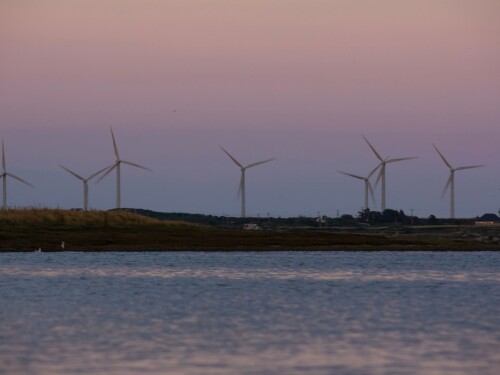Officials in Rhode Island and Massachusetts on Friday announced they plan to buy power from three new offshore wind farms, signaling that energy regulators in both states still consider the renewable energy source economically viable in New England after an industry-wide contraction last year.
Private utility companies in both states will now negotiate contracts to purchase up to 2,878 megawatts of electricity from the selected wind projects. The electricity prices under those contracts will not be publicized until they are submitted to state regulators for approval later this year.
The announcement came as part of a joint procurement process involving Rhode Island, Massachusetts and Connecticut. The goal was to make it possible for southern New England to buy offshore wind power in bulk, making the electricity cheaper for each state.
But the lion’s share of the electric capacity announced in the procurement so far — 2,676 of the 2,876 megawatts — would ultimately flow to Massachusetts. Rhode Island committed to securing the remaining 200 megawatts, which amounts to only one-sixth of the target Rhode Island officials set last fall. Connecticut officials were not ready to announce any viable projects on Friday.
The three wind farms include SouthCoast Wind, formerly known as Mayflower Wind. Rhode Island plans to purchase its 200 megawatts from SouthCoast Wind. The other companies are New England 1, developed by Avangrid; and Vineyard Wind 2, developed by Vineyard Offshore.
This story was reported by The Public’s Radio. You can read the entire story here.







